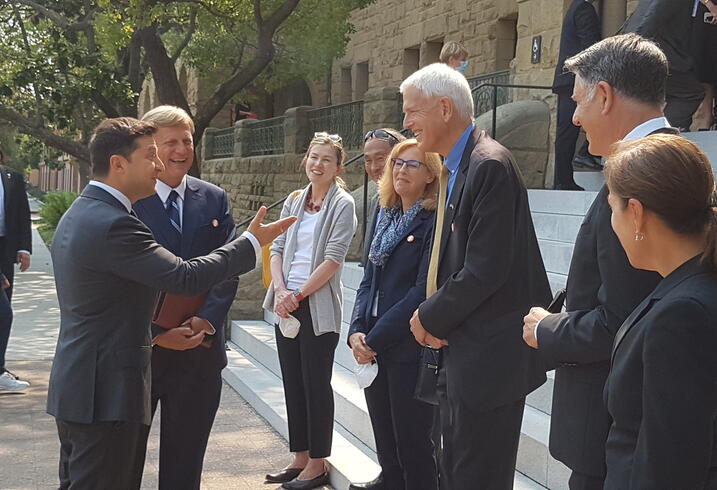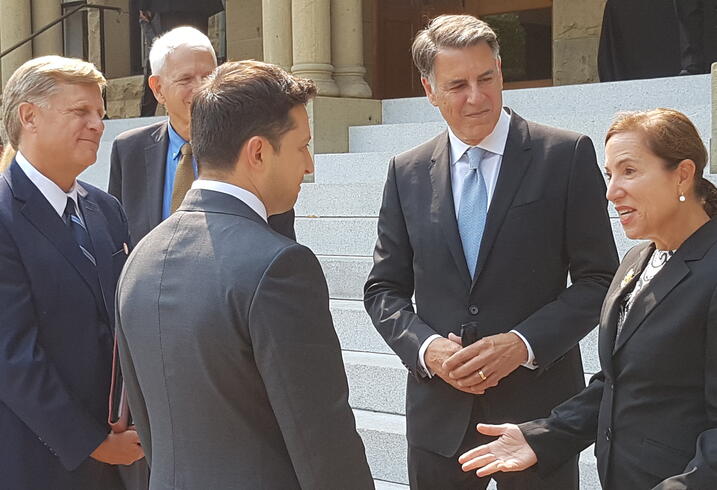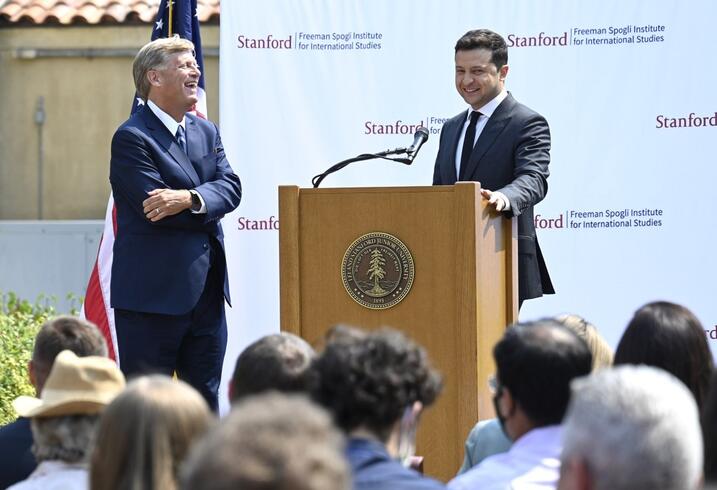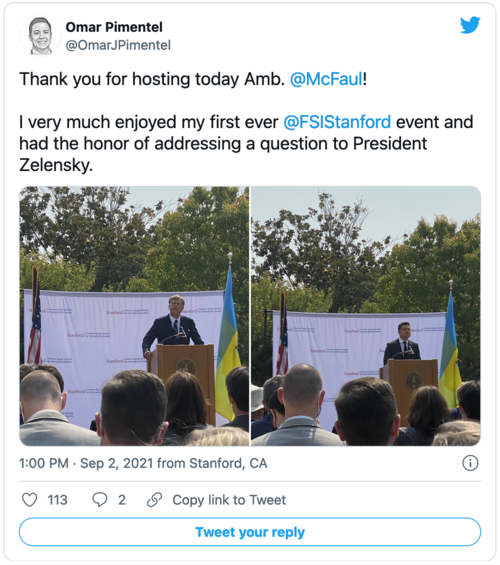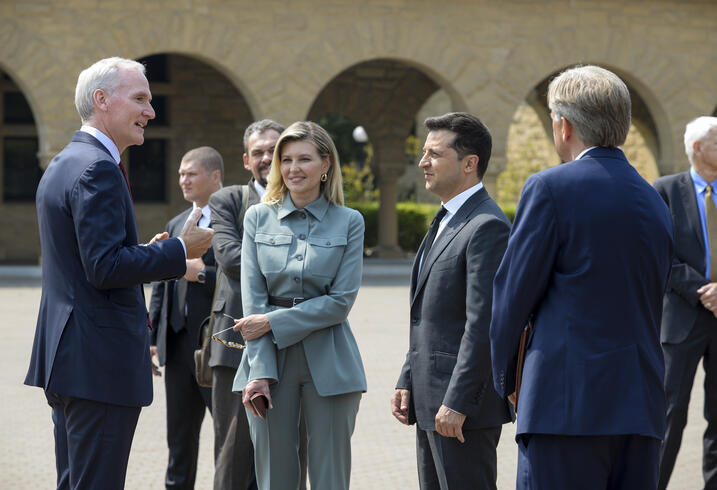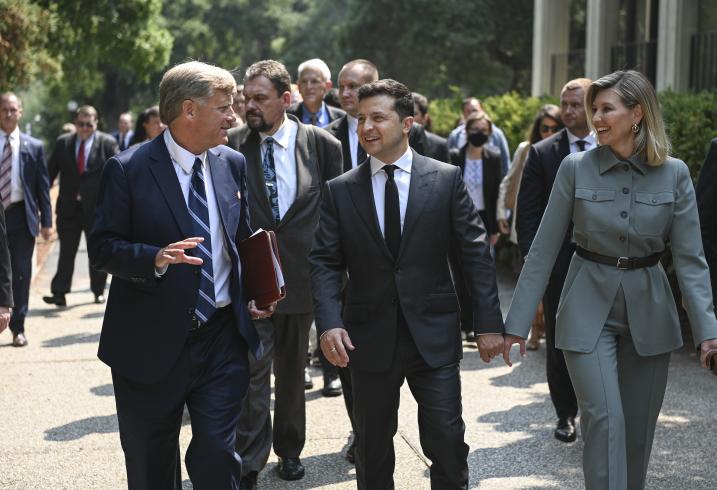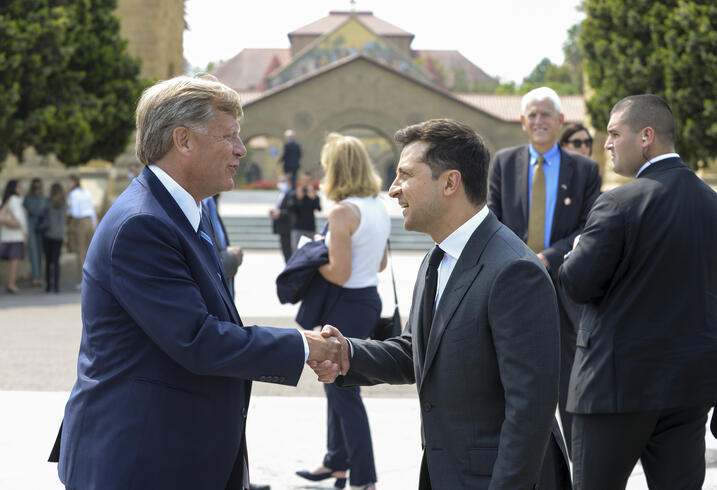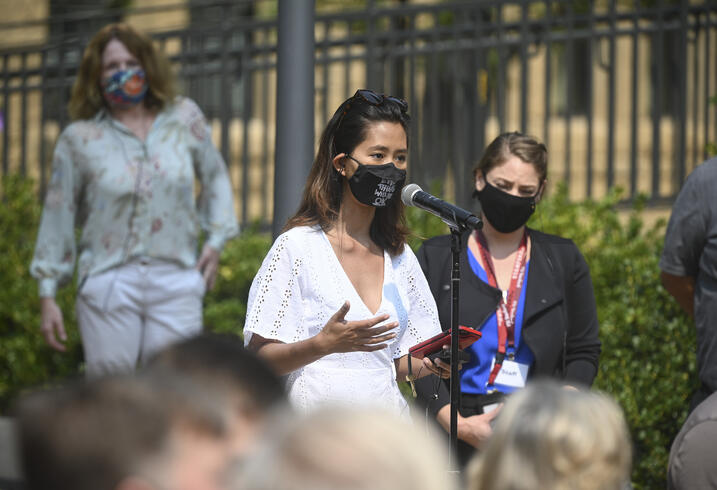The Transformative Power of Anger Under Authoritarian Repression
In a REDS Seminar co-sponsored by CDDRL and The Europe Center (TEC), Cornell Assistant Professor of Political Science Bryn Rosenfeld explored a compelling question: Why do people in authoritarian regimes take bold political actions — such as protesting, voting for the opposition, or criticizing the government — despite the threat of severe consequences? Her research highlights the role of emotions, particularly anger, in motivating these high-risk decisions and provides fresh insights into the dynamics of dissent under repressive regimes.
Rosenfeld challenged the common assumption that high-risk political activism requires strong organizational ties, such as membership in activist groups or networks. While this holds true in some cases, she argued that recent civic uprisings in authoritarian regimes often involve ordinary individuals — novices with no prior links to organized activism. These participants act despite the threat of repression, presenting a puzzle for traditional theories of political participation.
Central to Rosenfeld's argument is the critical role of emotions in shaping political behavior. Authoritarian regimes often use repression as a tool to silence dissent, but her findings show that this strategy frequently backfires by triggering anger. When people experience acts of repression — such as arrests or violence during protests — they often view these actions as deeply unjust, fueling their anger. This anger reduces fear of risks, shifts focus from personal consequences to collective grievances, and creates a sense of urgency to act. As a result, anger motivates bold political actions like protesting or voting against the regime. In contrast, fear amplifies the perception of danger, discourages action, and reinforces passivity. Rosenfeld’s work demonstrates how anger can transform repression into a catalyst for resistance, showing that attempts to suppress dissent often inspire even greater mobilization.
Her research is grounded in extensive data collected between 2021 and 2023 in Russia, a period marked by significant political upheaval, including the arrest of opposition leader Alexei Navalny, widespread protests, and the invasion of Ukraine. Through surveys and experiments, she measured participants’ emotions, risk attitudes, and political intentions in response to different scenarios. Participants exposed to information about repression reported higher levels of anger, which translated into a greater willingness to protest or take other political risks. For example, participants in the repression treatment group showed significantly higher risk acceptance scores than those in the control group, highlighting anger’s pivotal role in driving political action.
Rosenfeld’s findings have far-reaching implications. They challenge the assumption that repression is an effective tool for silencing dissent, showing instead that it often fuels resistance by mobilizing anger and encouraging the acceptance of risk. Her work also explains why ordinary citizens — those without activist ties — sometimes take extraordinary risks to stand up to authoritarian regimes. By focusing on the interplay of emotions and risk, Rosenfeld underscores the paradox of repression: rather than quelling dissent, it can inspire ordinary people to take extraordinary risks in the pursuit of justice. Anger, often seen as a destructive force, emerges in her work as a powerful driver of political change.
Read More

Cornell Assistant Professor of Political Science Bryn Rosenfeld’s work explains why ordinary citizens — those without activist ties — sometimes take extraordinary risks to stand up to authoritarian regimes.


